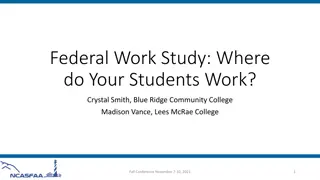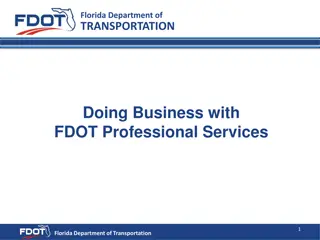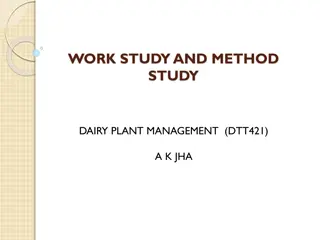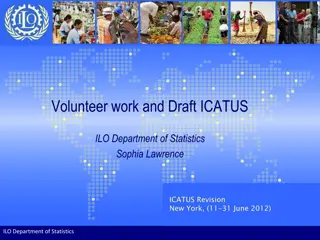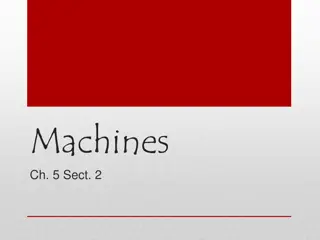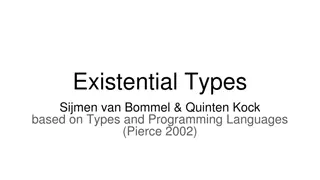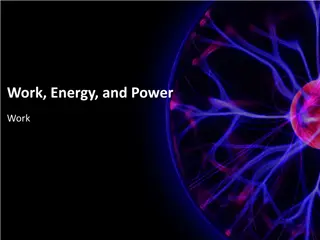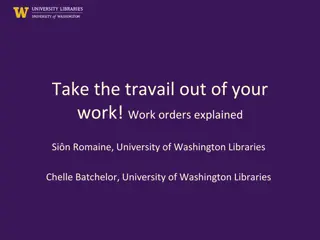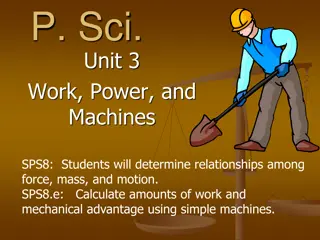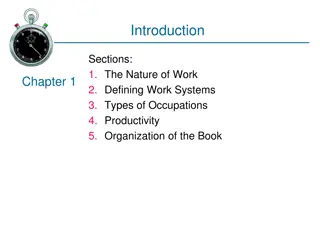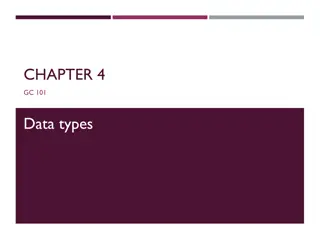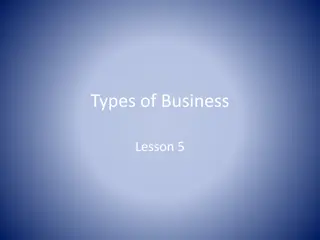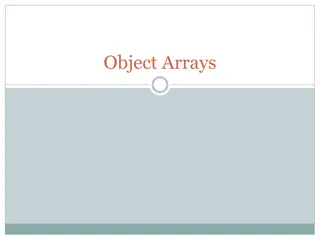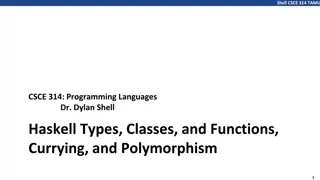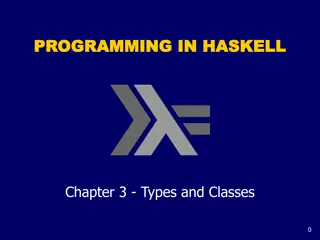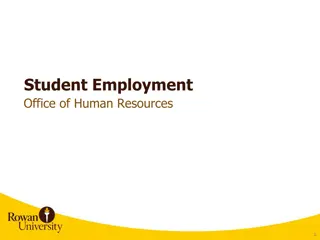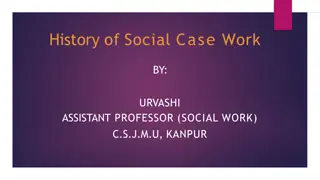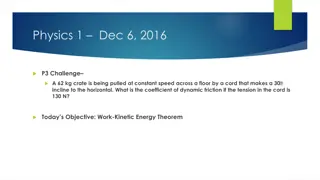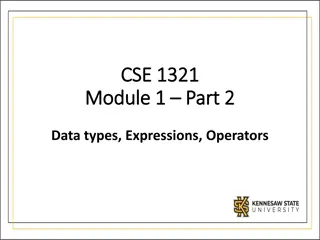Rethinking Work: Insights from Barry Schwartz's Speech
Barry Schwartz challenges the broken mindset towards work in his thought-provoking speech. He delves into why we work, the impact of capitalism on work satisfaction, and the dangers of false ideas. By exploring key theories about human nature and sources of poverty, Schwartz prompts reflection on th
1 views • 18 slides
The Importance of Work Experience in Career Development
Understanding the significance of work experience in shaping career paths is crucial for young individuals. Mentioning work experience in UCAS statements and apprenticeship applications can highlight key skills and industry knowledge. Testimonials emphasize the value of gaining practical insights an
0 views • 15 slides
Work Capability Assessment (WCA) Criteria Reforms May 2024
The Work Capability Assessment (WCA) determines if individuals claiming ESA and/or UC have limited capability for work (LCW) or work-related activity. Reforms aim to better support disabled individuals to engage with work. Consultation responses highlighted the need for changes in assessing disabili
0 views • 6 slides
Understanding Work in Physics
Exploring the concept of work in physics, this content covers how work is performed, when it is done, and the formula to calculate work based on force and distance. It highlights that the amount of work depends on the force applied and the distance moved, showcasing that different paths may require
0 views • 18 slides
UCL Staff Feedback on Hybrid Work Model Implementation
UCL conducted a survey among staff to gather feedback on the interim guidance for transitioning back to onsite work. The survey highlighted staff support for a hybrid work model, emphasizing productivity, efficiency, and well-being benefits. Staff also expressed a preference for clear expectations a
2 views • 21 slides
Federal Work Study: Student Work Locations and Future Ideas
Explore insights from the Fall Conference 2021 on Federal Work Study (FWS), including student work locations, impacts of Covid, and ideas for the future. Learn about part-time employment opportunities for eligible students, on-campus and off-campus work options, and tips from Blue Ridge Community Co
0 views • 13 slides
Understanding Instruction Set Architecture and Data Types in Computer Systems
In computer architecture, the Instruction Set Architecture (ISA) level is crucial in defining how a processor executes instructions. This includes the formal defining documents, memory models, registers, and various data types that can be supported. The ISA level specifies the capabilities of a proc
2 views • 13 slides
Understanding Work Study Methods in Industrial Engineering
Work study involves the systematic examination of methods to improve resource utilization and set performance standards. It includes method study, work measurement, and ergonomics to enhance efficiency and economy in various activities. Method study analyzes work processes for improvement, while wor
1 views • 21 slides
Work Protocols and Safety Measures for Employees Returning to Work
In the wake of the COVID-19 pandemic, these work protocols emphasize roles, responsibilities, and mental wellbeing of employees. Pre-work precautions at home, personal measures, testing procedures, increasing awareness, and safe travel guidelines are highlighted to ensure a secure work environment.
0 views • 16 slides
Understanding Medical Social Work and Its Impact on Patient Well-being
Medical Social Work, also known as Health Care Social Work, plays a crucial role in addressing the social, physical, and psychological needs of patients. Through providing case work, after-care, and convalescence services, Medical Social Workers contribute to reducing hospital readmissions, preventi
0 views • 12 slides
Gender Disparities in Unpaid Care Work and Earnings in China
Examination of gender discrepancies in unpaid care work and its impact on earnings in China using data from the 2008 China Time Use Survey. Women predominantly perform unpaid care work at home, limiting their labor market participation and contributing to gender pay gaps. The study explores the econ
0 views • 22 slides
Hot Work Procedures and Permits - Intrepid Policy Revised 04/2014
The Intrepid Policy outlines procedures and precautions for hot work, which includes operations involving open flames or heat production. The policy emphasizes safety measures such as flame removal, use of welding blankets, and obtaining permits. Alternative cold work methods are also suggested to e
0 views • 18 slides
Doing Business with FDOT Professional Services in Florida
The Florida Department of Transportation (FDOT) requires procurement of professional services through competitive negotiation processes mandated by statute and administrative code. Prequalification, advertisement, and competitive selection of consultants based on qualifications are essential. Profes
7 views • 23 slides
Techniques for Improving Productivity in Dairy Plant Management
Work study and method study are essential techniques for enhancing productivity in dairy plant management. Work study involves method study and work measurement to analyze work processes, develop efficient methods, and determine standard times. Method study focuses on recording and evaluating work m
0 views • 11 slides
Understanding Volunteer Work in Statistical Frameworks
Volunteer work is defined as unpaid, non-compulsory work individuals undertake for organizations or directly for others outside their household. The measurement of volunteer work aligns with promoting decent work, encompassing both goods and services produced within and beyond the System of National
0 views • 14 slides
Understanding Machines: Work, Forces, and Efficiency
Machines play a vital role in making work easier by increasing force, distance, or changing the direction of applied force. Different types of machines like levers, pulleys, and inclined planes simplify work processes. Understanding input and output forces, as well as input and output work, is essen
1 views • 10 slides
Understanding Working Fluids in Thermodynamic Systems
Working fluids are essential in thermodynamic systems to transfer energy and perform work. This article explores the selection criteria, types, and work calculation involving working fluids in cogeneration and trigeneration systems. The properties, fluid types, and work processes are discussed to un
1 views • 14 slides
Exploring C Program Refinement Types with Liquid Types and Invariant Discovery
Discover the integration of Liquid Types and Refinement Types in C programming through Invariant Discovery, leading to automatically adapting C programs to fit Liquid Types. Explore challenges and solutions in expressing invariants, handling unknown aliasing, and implementing strong updates within t
0 views • 24 slides
Understanding Existential Types and Type Manipulation in Programming Languages
Explore the concepts of existential types, type abstraction, type ambiguity, packing, and unpacking in the context of programming languages. Learn how to work with hidden types, universal types, and the nuances of type manipulation. Examples and illustrations are provided to enhance understanding.
0 views • 17 slides
Understanding Work, Energy, and Power in Physics
Work, Energy, and Power are fundamental concepts in physics. Work is the transfer of energy that results in displacement, requiring a force applied over a distance. Energy is the capacity to do work, while Power is the rate at which work is done. Examples illustrate how work is calculated in differe
0 views • 67 slides
Exploring Work and Employment Dynamics
Work involves activities that require effort, while employment entails receiving payment for work done. Employers hire workers who work for them, while self-employed individuals work for themselves. Leaving school for the working world presents challenges like time and money management, new relation
0 views • 33 slides
Simplifying Work Orders for Efficient Task Management
Explore the concept of work orders and how they streamline processes, track inventory, and manage workflows. Learn about configuring work orders, different process types, and the crucial aspects of managing work queues effectively. Dive into examples, basic workflows, and detailed configurations to
0 views • 16 slides
Sustainable Work Practices for a Balanced Life
Promoting sustainable work practices is essential for individuals to maintain a healthy work-life balance throughout their career. Key aspects include age-friendly work environments, job quality policies, and addressing various challenges faced by workers across different age groups. Ensuring job qu
0 views • 12 slides
Understanding the Relationship Between Work and Energy
Work and energy are closely related concepts in physics, where work involves the transfer of energy when a force is applied to move an object in the same direction. The equation for work is given by Work (joules) = Force (newtons) x Distance (m), and power represents the rate at which work is done,
0 views • 7 slides
Understanding Work, Power, and Machines in Physical Science Unit 3
Explore the concept of work in relation to force, mass, and motion, and learn how to calculate work and mechanical advantage using simple machines. Work is defined as force exerted over a distance, with the direction of force playing a crucial role. Discover the SI unit for work, practical examples,
0 views • 60 slides
Understanding the Nature of Work Systems and Occupations
Work is the core activity that involves physical and mental effort to achieve a specific task with commercial value and compensation. From historical figures to the pyramidal structure of work elements, tasks, and productivity, this chapter explores the essence of work, its definition in physics, an
0 views • 41 slides
Social Work Education in Kyrgyzstan: Challenges and Achievements
Kyrgyzstan faces challenges and celebrates achievements in the field of social work education. The Association of Social Work Alumni in the Kyrgyz Republic has been instrumental in advancing the profession. With the establishment of the Social Work Department at Bishkek Humanitarian University in 19
0 views • 9 slides
Understanding Java Data Types and Variable Declaration
Dive into the world of Java data types and variable declaration with this comprehensive guide. Learn about primitive data types, declaring variables, integer types, floating-point data types, character data type, and boolean data type. Master the art of assigning names and data types to efficiently
0 views • 31 slides
Understanding Business Classifications and Work Types
Business organizations can be classified based on various criteria such as size, work type, industry sector, and legal structure. Size classifications range from small enterprises like sole traders to large corporations employing hundreds of people. Work types include primary sector activities like
0 views • 17 slides
Understanding Arrays of Objects and Primitive Types
Arrays of objects provide a way to store and manage multiple instances of complex data types, similar to arrays of primitive types. This content explores the concept of arrays of objects, how to declare and allocate memory for them, and how to work with arrays of primitive types like double and int.
0 views • 25 slides
Understanding Work Permit Process in Finland
Key regulations in Finland dictate the process for obtaining work permits, with a focus on the Aliens Act and related administrative procedures. Different types of residence permits are available, either based on work or including the right to work. Certain individuals, such as EU/EEA citizens and a
0 views • 17 slides
Data Types, Expressions, and Operators in Java
This resource provides information on data types, expressions, and operators in Java. It covers topics such as data types (int, double, String, boolean), operator precedence, and practice problems to work on expressions and types. The content includes announcements, reminders, a recap of data types,
0 views • 20 slides
Understanding Haskell Types, Classes, Functions, and Polymorphism
In Haskell, types are collections of related values, ensuring type safety through compile-time type inference. Type errors occur when functions are applied to arguments of the wrong type. Annotations help define types, and Haskell offers basic types like Bool, Char, String, Int, Integer, Float, and
0 views • 30 slides
Understanding Types and Classes in Haskell Programming
Types in Haskell are names for collections of related values, allowing for safer and faster programs by catching errors at compile time. Haskell supports basic types like Bool, Char, String, Int, Integer, and Float, as well as list and tuple types. Type errors occur when functions are applied to arg
0 views • 27 slides
Principles of Motion and Time Study in Work Design
Motion and Time Study are essential aspects of work design, focusing on maximizing efficiency, minimizing worker fatigue, and improving productivity. These studies involve developing systems, standardizing work methods, determining time standards, and training operators. Work is defined as a livelih
0 views • 53 slides
Student Employment Office of Human Resources Overview
The Student Employment Office of Human Resources provides information on different types of student employment opportunities, rules, and forms. It includes details on Federal Work Study (FWS), Institutional Work Study (IWS), and Student Hourly positions. The office outlines rules regarding work hour
0 views • 36 slides
Evolution of Social Case Work: A Historical Overview
Explore the rich history of social case work in the United Kingdom, United States, and India, from charity-based initiatives to the development of professional social work disciplines. Learn about the types of poor individuals identified throughout history and the evolution of relief programs to cat
0 views • 14 slides
Understanding Work and Energy in Physics
This content covers the concept of work defined as the product of a force through a distance, positive and negative work scenarios, when work is not done, work at an angle, and work by a variable force. It also includes practice problems to enhance comprehension on the topic of work and energy in Ph
0 views • 11 slides
Introduction to Python Data Types, Operators, and Expressions
Understanding data types, expressions, and operators is fundamental in Python programming. Learn about Python's principal built-in types such as numerics, sequences, mappings, and classes. Explore numeric types, strings, and their operations like concatenation, escape sequences, and conversions betw
0 views • 20 slides
Enhancing Family Wellbeing Through Flexible Working Policies: An In-Depth Analysis
This presentation by Dr. Khalid Al Naama explores the impact of flexible working arrangements on family relations from a policy perspective. It delves into the various types of flexible working arrangements, their benefits for both parents and employers, and the challenges faced in achieving a bette
0 views • 12 slides





